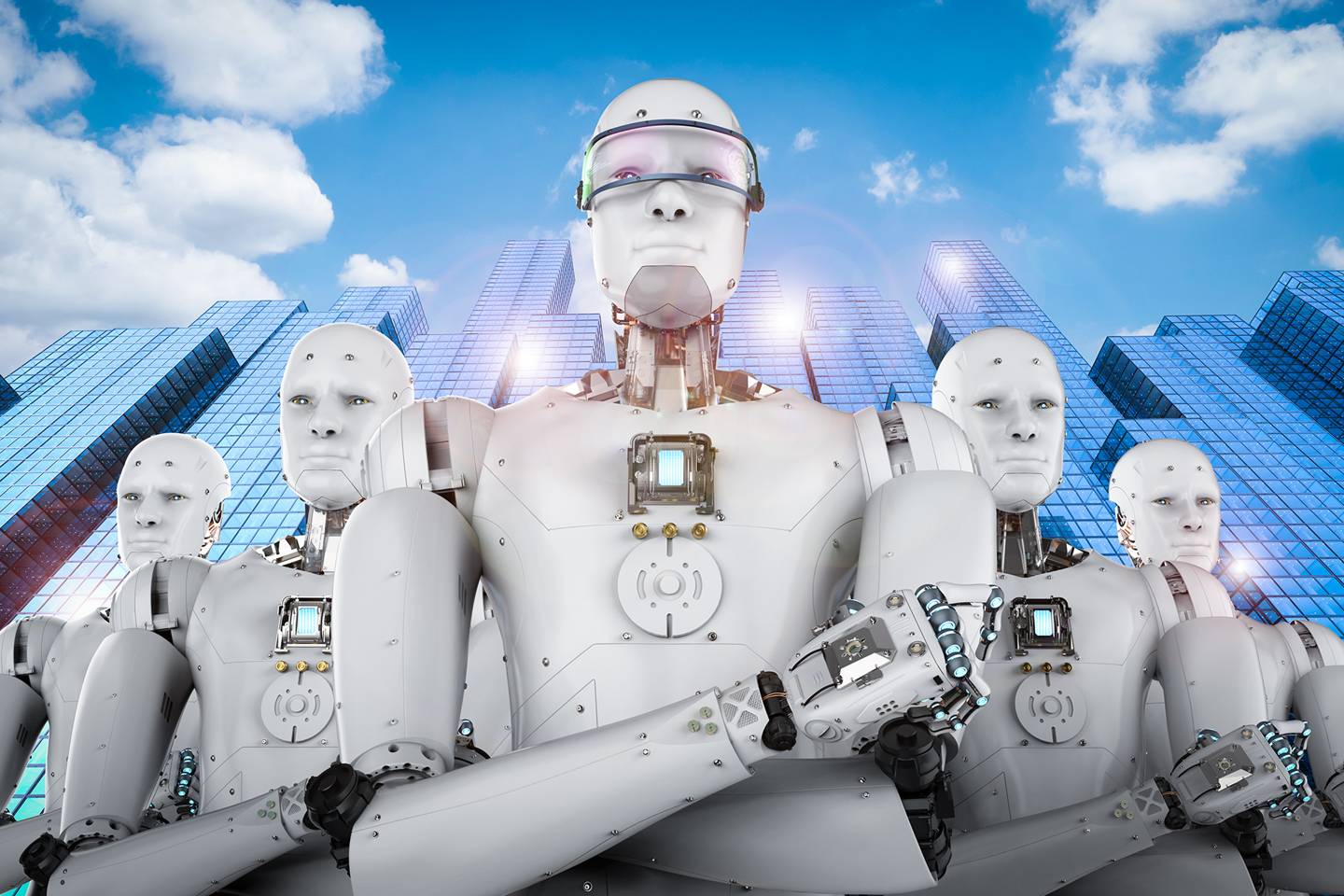Source – gq-magazine.co.uk
cience-fiction guru William Gibson, who coined the term cyberspace, famously pointed out that the future is already here – it is just not very evenly distributed. We veer from anticipating a new dawn to prepping for the end of days. But the future we want is up to us and it’s time to take a side. Herewith, six digital advances that prove the best (and worst) is ours to control.
1. Beneficial artificial intelligence
Where we are: You can’t move for pundits telling us what artificial intelligence is going to do for us. It is transforming our world, but it has been for the past 50 years. Every smartphone is powered by AI research, giving us information retrieval via voice recognition or apps that spot our friends’ faces in the photos we take.
Where we’re headed: A world fuelled and enhanced by AI is one to look forward to. Autonomous cars will mean efficient and safe transport. Real-time translation buds that will enable you to speak one language and hear another will transform our travel experiences. Despite the cries of alarmists, there is little reason to believe that our AIs are going to “wake up” and decide to do away with us.
2. The datasphere
Where we are: Data changes everything: our personal lives, businesses and public services. One dramatic application is digitally powered precision medicine. Our bodies are constructed according to information encoded in our genes. Understanding how these instructions make proteins, build cells, repair damage and repel viruses is all driven by data.
Where we’re headed: New drugs, therapies and treatments will produce a revolution in the delivery of healthcare. What’s true for health is true for education, leisure, finance and travel. Every aspect of how individuals, corporations and governments function can be more effectively managed with the right application of the right data.
3. New companions
Where we are: They are already in our homes and in our lives, we know them as Alexa and Siri. These intelligent assistants will assume more and more of a role. As they learn from our interests and habits, they will become more informed of the information we need. They will not have any actual interest or awareness – but that won’t matter. We will increasingly treat them as our companions.
Where we’re headed: Humans will come to confide, trust and rely on our new companions. They will support us for better or worse, in our prime and our decline. Powered by AI and abundant data, they may assume the characteristics of those dear or near to you. Imagine your late grandmother or your favourite rock star chatting helpfully in your living room.
4. Unthinking artificial intelligence
Where we are: In the Terminator film series, Skynet, a defence network, suddenly becomes self-aware and launches a full-scale thermonuclear attack to get rid of humans. Nothing of that sort is about to happen. It is not AI we should fear but our own natural stupidity.
Where we’re headed: As we give systems control of our decision-making, we must not abdicate our responsibility. The danger is the unthinking digital system, without proper restraints, that launches an unthinking attack. We need to take great care whenever we take the human out of the decision loop when it comes to matters of life and death. AI systems lack moral sense and the broader contextual judgements of humans. A future of weaponised AI is one to fear.
5. Uncontrolled data analytics
Where we are: The widespread availability of high-quality data will be a boon. But data can be used to corrupt, misdirect and misinform. Recent events around Cambridge Analytica and its use of Facebook data to profile and target particular groups have caused a furore. Data used with the express aim of achieving a desired effect without the knowledge of the subjects themselves should make us very uneasy.
Best iPhone and iPad apps for everything
Where we’re headed: We have examples of data being used to make decisions on everything from prison sentences to credit ratings. The data can and often does encode bias. Courts in the US already use AI software to inform sentencing and the results are mixed. The AI notices the prejudices in its vast database of previous sentences and hands them down again as the usual “right” answer.
Algorithms can make decisions, but they can’t be accountable. Data collected from each of us every day and increasingly in the future can invade our privacy and reveal features of our lives that we ourselves are unaware of. Consumers and citizens should be empowered, not oppressed by data and its analysis.
6. Rampant cyber warfare
Where we are: Every second of every day computer networks around the world are under threat. Hackers and nation states all launch software to attack and subvert our digital systems. We are living in an age of increasingly frenzied but undeclared wars.
Where we’re headed: Because they are in virtual space, we don’t see the physical damage. But one day soon an airport will go dark or there will be a crash of the banking system. Countries, businesses and individuals are engaged in a digital arms race, desperately building new defences in the face of cyber attack. Computing is a dual-use technology. The same innovations that enhance our world can be used for harm. History points the way to a better future. For physical weapons, we have engineered and enforced conventions, treaties and limitations. We urgently need equivalents for our digital world.
Artificial intelligence key stats:
2.3m new jobs created by the AI industry by 2020
£5.4bn amount spent on AI by 2022
1.8m jobs lost as a result of the AI industry by 2020
